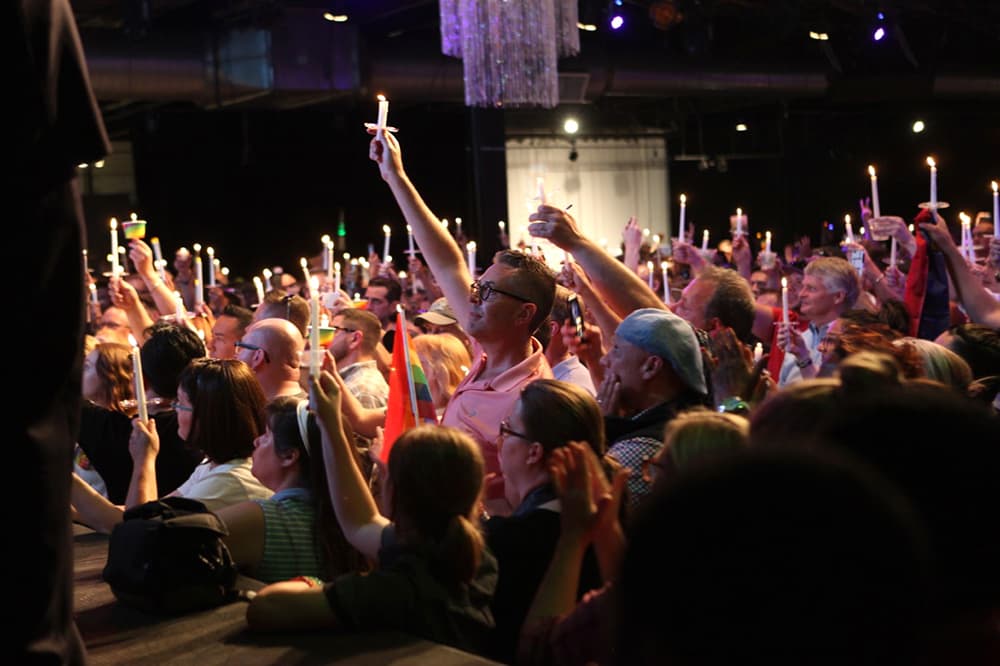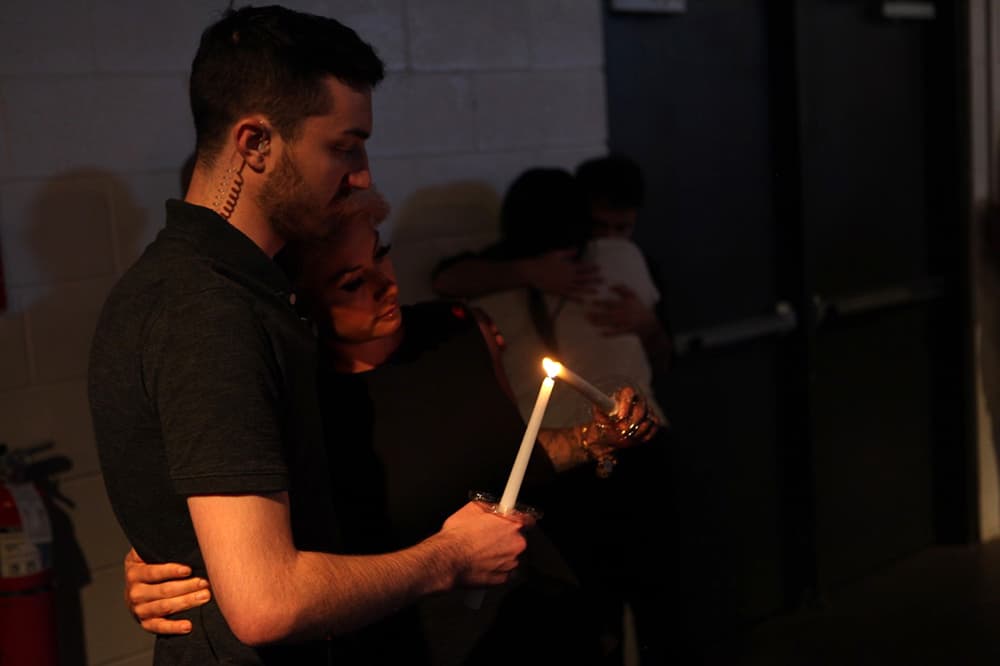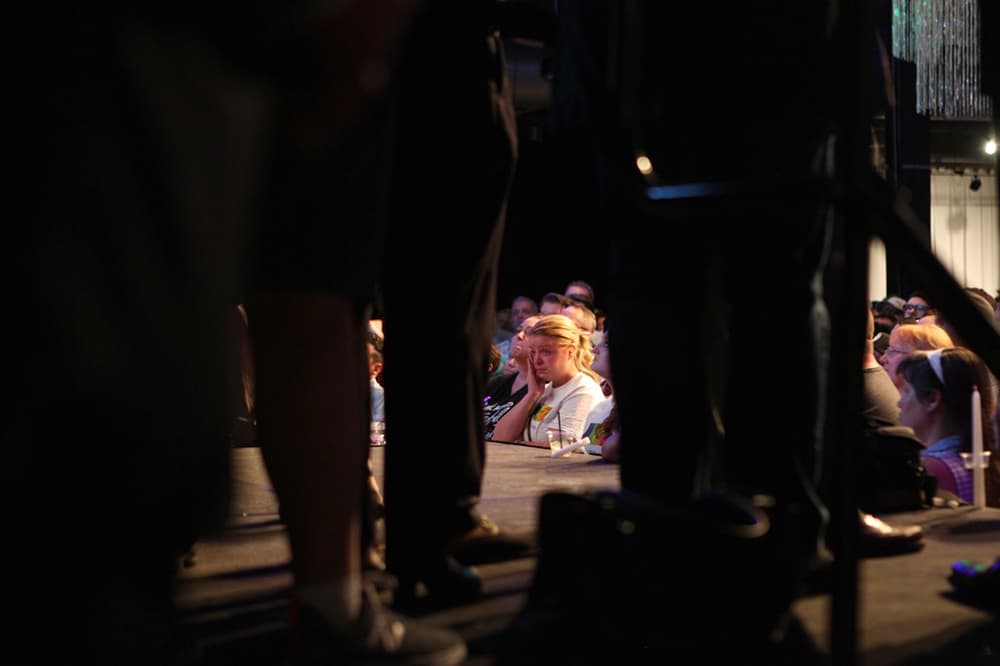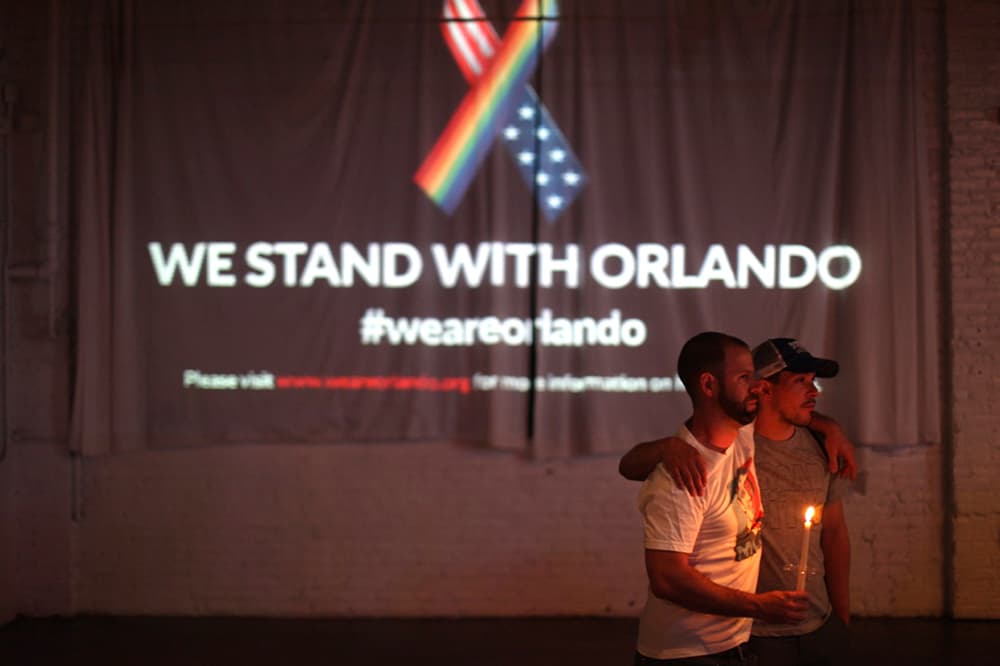Jason Marsden was 26 in 1998, when his friend Matthew Shepard was murdered. He saw the brutal killing change what it was to be gay in the United States. He never thought another act of violence would have such a forceful impact on the LGBTQ community.
And yet here was Marsden last night in Denver, facing a crowd of more than a thousand, trying to put words to the worst mass murder in this country’s history. If Shepard's death was the tragedy that changed everything, then what was this massacre? What was 50 people?
“It’s a generation later, and we’re about to learn in painful detail all we’ve lost,” said Marsden, now the executive director of the Matthew Shepard Foundation. He was one of a long line of speakers — a rabbi, a reverend, an imam, the mayor and the lieutenant governor among them — at a vigil hosted by Tracks, the nightclub on Walnut Street.
Hundreds of people had lined up around the building as the sun set, waiting to be frisked at the door by a team of bouncers. A few joked about the strangeness of being in the place before dark. Even in grief, the place kept its charm — huge chandeliers, rainbow balloons hanging from the ceiling and a soundtrack stacked heavily toward the “We Are Family” genre.
In its various iterations, Tracks has been a safe space in Denver for more than 35 years. Still, it was impossible not to think of how the shooter had ripped though a venue like this — through the dark, through the people. Some of the mourners had been dancing at Tracks even as the massacre happened at Pulse Orlando.
“There’s a Pulse in every city. This is Denver’s Pulse,” said Jeff Allen, 42, founder and chairman of Equality Colorado.

They were 1,800 miles from Orlando, but the common refrain was, “It could have been us.”
Some woke up on Sunday to text messages from their parents and grandparents, checking to see that they hadn’t somehow been in Orlando.
“You all know these victims, because they are you … It is personal, it is deeply personal,” said Lt. Gov. Donna Lynne. A young woman shook with tears against the wall of the club.
The shooting was a reminder for the older generation of violence on a smaller scale — of personal abuse, maybe, or Matthew Shepard’s death. For a few of the youngest, it was an introduction to hatred.
“I felt lucky up until this point,” said Tanner Edwards, a 25-year-old manager at Tracks. “I think we all kind of got comfortable.”

Gay clubs are supposed to be safe. They're home to "the family you choose," and they're often bound together from city to city by a network of promoters and entertainers.
"He just took it hard today," said Alan Densmore, 40, consoling his partner Sammy Cordova, 31. "There's so much hate."

Denver PrideFest is this weekend, and no one is backing down.
“I think Pride is going to heal us,” Edwards said.
Denver’s authorities have promised appropriate security for the event, which happens at Civic Center Park on June 18 and 19. Everyone I spoke to wants to see record turnout.
“At this point, you need to be bold and courageous in your support,” said Alan Densmore, 40.
The vigil, to be clear, was about more than grief. Many speakers explicitly condemned the idea that people of Muslim faith should be punished for the acts of extremists. Others demanded controls on guns, or better access to mental health care.
Amy Foster, 42, said that the LGBTQ community was only the latest minority to suffer this extreme gun violence. She told me that this strike at a safe space had scared her — “I am literally scared” — but she felt a duty to push past it.
“I don’t want to stand down. I want to stand up,” said Foster, a volunteer with Equality Colorado. “ … We need to take back our community.”
Marsden, of the Matthew Shepard Foundation, said that Sunday was only the beginning of yet another search for meaning.
“There’ll be so many more stories. So much more human potential that was sacrificed, needlessly,” he said. But maybe, he hoped, their stories would push millions more toward acceptance. Maybe more people will call out hatred and stop slurs.
Maybe he's naive, he admitted. Maybe, he said, this won’t happen again.












